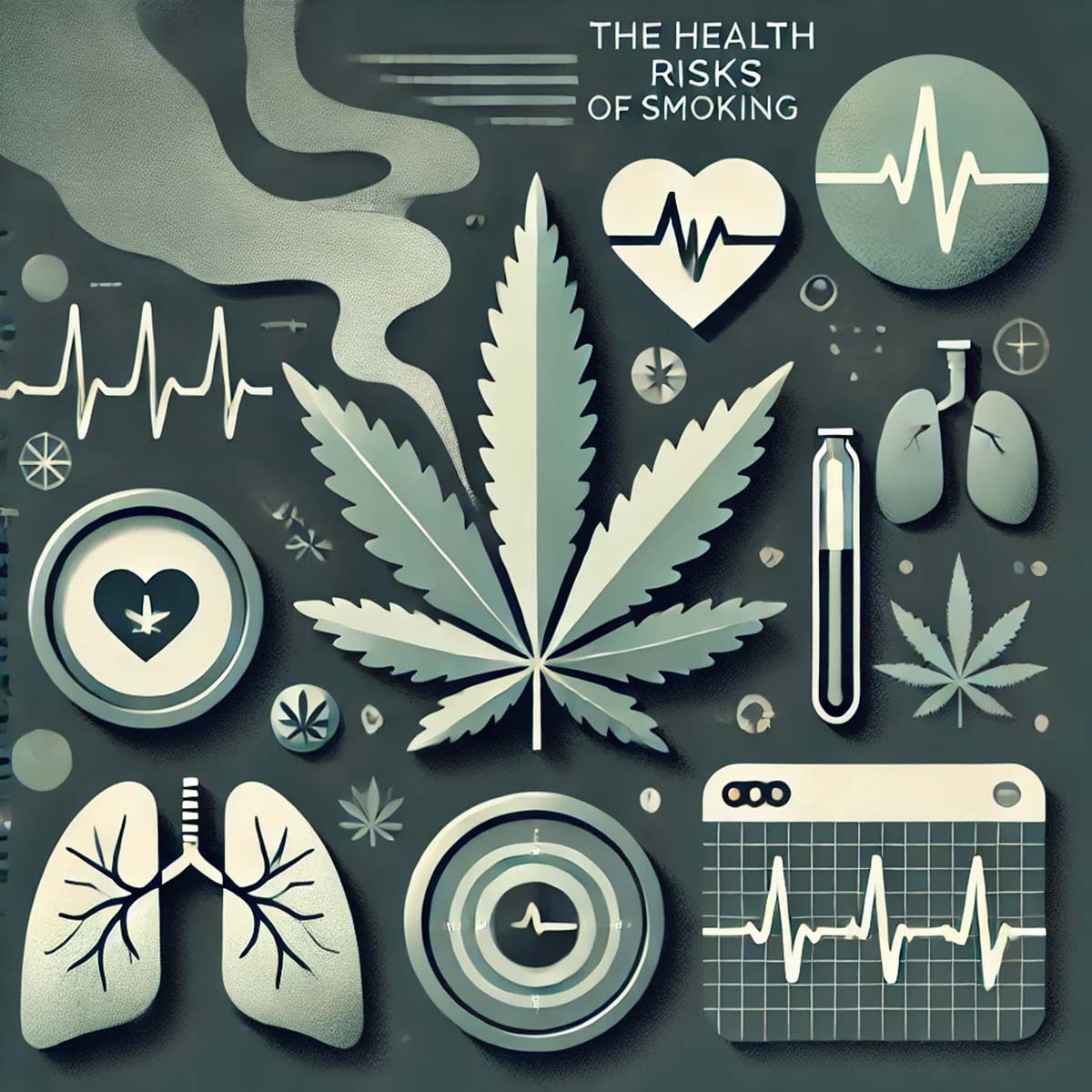Cannabis is celebrated for its potential therapeutic benefits and recreational use, but like any substance, it’s not without its risks, particularly when smoked. This analysis provides a balanced view of the health risks associated with smoking cannabis to help you make informed decisions.
1. Lung Irritation
One of the most significant health risks of smoking cannabis is lung irritation. When cannabis is combusted, it produces tar and harmful chemicals that can irritate the lungs. This can lead to chronic bronchitis-like symptoms such as coughing, excess mucus production, and wheezing. While not everyone who smokes cannabis experiences these symptoms, the risk is still present.
2. Respiratory Infections
Smoking cannabis can make you more susceptible to respiratory infections. Inhaling hot smoke can weaken the immune system’s ability to fight off infections. If you’re a frequent smoker, you may be at a higher risk of developing bronchitis or pneumonia.
3. Decreased Lung Function
Long-term cannabis smoking has been associated with a decrease in lung function. This is particularly concerning for individuals with preexisting respiratory conditions like asthma. Reduced lung function can result in shortness of breath and decreased overall fitness.
4. Risk of Addiction
While cannabis is not as addictive as some substances, it is still possible to develop a dependence on it, especially with frequent use. This can lead to withdrawal symptoms when trying to quit, such as irritability, insomnia, and loss of appetite. It’s essential to use cannabis responsibly and in moderation to mitigate the risk of addiction.
5. Mental Health Effects
Although not everyone experiences negative mental health effects from smoking cannabis, it can exacerbate existing mental health conditions. For some individuals, it can lead to increased anxiety, paranoia, and even psychosis. If you have a history of mental health issues, it’s crucial to be cautious when using cannabis.
6. Impaired Cognitive Function
Regular cannabis smoking, especially in adolescence when the brain is still developing, can impair cognitive function. It may affect memory, attention, and learning abilities, potentially impacting academic and professional performance.
7. Risk of Accidents
Cannabis can impair coordination and reaction time, leading to an increased risk of accidents, particularly when driving. It’s essential to avoid operating heavy machinery or driving under the influence of cannabis to prevent accidents.
8. Legal Consequences
In many places, the recreational use of cannabis is still illegal. Getting caught with cannabis or being under the influence in a prohibited area can lead to legal consequences, including fines and even imprisonment. Understanding the laws in your area is crucial to avoid legal troubles.
9. Quality and Potency Variability
The potency of cannabis can vary greatly depending on the strain and source. Some strains are much stronger than others, and there’s always a risk of consuming more THC than intended. This can lead to an overwhelming high, especially for inexperienced users.
Summing Up
While cannabis has the potential for therapeutic and recreational use, smoking it does come with health risks. If you choose to consume cannabis, consider alternative methods like vaporization or edibles to minimize the impact on your respiratory system. Additionally, always use cannabis responsibly and be aware of the laws and regulations in your area. If you have concerns about cannabis and your health, consult with a healthcare professional for personalized guidance.



